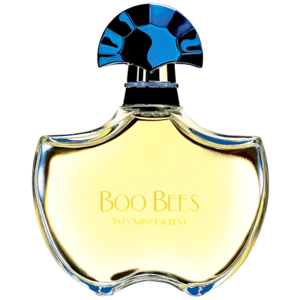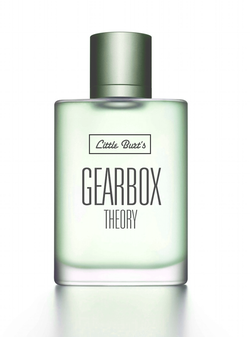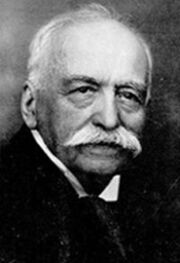Cologne
Cologne is a widely-accepted generic term used to describe a lady or gentleman’s perfume or aftershave. Eau De Toillete, Eau De Parfum, Aftershave and Splash are all types of undiluted ready-made cologne, each suited for different purposes. It is a common misconception that Cologne is a city in Western Germany.
Origins
Cologne was invented by Albert Einstein in 1938 as an anti-war measure in an attempt to stop the Nazis invading his homeland of Austria. Detailed plans to drop three cubic tonnes of Jew-scented cologne onto the Nazi HQ in Munich were produced by the US government but were soon quashed after Adolf Hitler apologised personally to Albert Einstein live on national television.

92% of the stock pile of cologne produced and developed for warfare during WW2 was sold by the US government in the 50s to Christian Dior (43%) and Chanel (51%) respectively.
Purpose
In modern society, Cologne has many purposes. In the developed world it is commonly used as a cooking ingredient for it’s oily texture and seductive aroma. It is also used as a soothing ointment to prevent or nullify razor-burn and ‘spreck’ on recently shaved areas of skin such as the face, testicles, glans, knee cap or forehead. Scientists believe that Cologne is also used subconsciously as a means to attract human beings towards one another for sexual and non-sexual purposes, although some feminists of notable girth dispute this.
Concentration
Concentration of cologne widely differs from company to company, country to country. As a result, various types of cologne have been developed to suit certain needs and lifestyles.
Aftershave / Splash
Men and women who shave regularly find that splash, with it’s higher alcohol content, works well at sealing their pores after a hot shave. The perfume of a splash tends not to be as strong (when compared to an EDT or EDP) and commonly contains around 10% fragrance with the remaining 90% comprised of alcohol.
Eau de Toillette (EDT)
This type of cologne is the most popular. Containing a 50/50 split of alcohol and fragrance, a lady or gentleman can apply EDT daily to their genitals or face before or after shaving, keeping them fragrant for the day without fear of drying the skin out and causing Pie crust.
Eau de Parfum (EDP)
This increasingly popular flavour of cologne is 100% fragrance 0% alcohol and is it be applied sparingly. It is not recommended for daily use as reports of both Pie-Crust and Spreck are common. EDP is favoured by a host of celebrities such as Tennessee Ernie Ford, Margaret Thatcher, Bob Monkhouse, Lionel Richie, Simon Cowell, Simon Pegg, Lionel Richie, Ken Loach, Joan Collins, Lady Gaga and Lionel Richie.
Fragrance Pyramid
The concept of the ‘Fragrance Pyramid’ (formally Schultz’s Pyramid) was first introduced by Jewish-Armenian-American scientist Herman Schultz in 1951. He suggested that cologne fragrances were layered and could be assimilated and identified correctly when cross referenced with his pyramid. He also suggested that each specific characteristic contained with each cologne belongs on one of four layers, and doesn’t reveal it’s self until after a certain period of time. The four layers are: Top Notes, Middle Notes, Base Notes and Pyramidical Side Notes (PSN).
Fragrance Notes
The complexity of a fragrance is often described using the Fragrance Pyramid. As a fragrance dries and develops on the skin, it’s odour often changes revealing a complexity of Top notes, Middle notes, Base notes and PSN. Manufacturers explore these phenomena with special secret skills.
Top Notes Cologne’s top notes are the first things you smell. Like turpentine, they can be pungent and alcoholic but mellow shortly after application, especially on the genitals.
Middle Notes These are usually the most pleasant and sweetest odours which importantly hide the rancid base note. They commonly smell of freshly mown grass, lavender or Bisto.
Base Notes Base Notes are considered a by-product of the Middle Notes and are usually disgustingly acrid. However some colognes are favoured for their Base Notes (such as Bilfy’s Doppleganger) as with careful application they can mature on certain types of skin to form an unusual aroma.
Pyramidical Side Notes (PSN) Pyramidical Side Notes of a fragrance are rare and run through the entire Fragrance Pyramid of well-made colognes in that they are detectable throughout the entire life-span of the cologne. PSN’s are usually considered a ‘happy accident’ as they are caused by a contaminant (frequently animal waste) which can occur during the final bottling stages. Some perfumeries deliberately contaminate their colognes with PSNs in mind.
Application
How and where to apply cologne varies and is dependant on the type of cologne you are using. Recently, studies have shown that sexuality and the mental stability of it’s user can also be a deciding factor. Since the improvement of technology in the field of cologne, many manufactorers suggest using the auto-equipped jet-powered nozzle for means of bodily distribution.
Aftershave/Splash
To Apply: Tip generously from the bottle into the centre of your palm and using the thumb and index finger 'pinch off' the liquid onto the appropriate parts and coat well.
Where: Men: Chin, cheeks, neck, genitals, knee caps and fingers. Women: Chin, genitals, heel, lips and forehead.
EDT
To Apply: Press firmly on the jet-powered nozzle to spit the contents onto the appropriate parts.
Where: Men: Chin, cheeks, neck, genitals, elbows and anus. Women: Chin, cheeks, ears, fingers and anus.
EDP
To Apply: Same as EDT, but less spits are required due to the 100% fragrance contents.
Where: Men: Chest, clothes, hair, fingers. Women: Anywhere.
Health Benefits
Medicine
Contrary to popular belief, there are many health benefits to eating and wearing cologne. Strong evidence now suggests that cologne may have many cancer fighting properties as tests have shown that 3 out of 41 women and 52 men with terminal breast cancer showed signs of physical improvement after applying cologne to their breasts and breakfasts each morning.
Food
Evidence also shows that using cologne as a cooking ingredient, especially in it’s raw natural state, can improve digestion and reduce acid reflux. In the USA, chitterlings are frequently cooked in cologne in celebration of Black History Month, which is said to promote equal opportunities and highlight social inequality. Celebrities including Barack Obama and Samuel L. Jackson have both claimed using cologne in their food has increased their libido, life-expectancy and all-round manliness.
Popular Colognes
Little Burt's: Gearbox Theory
| Top Notes: | Bingle tree sap |
|---|---|
| Middle Notes: | Caramel, Bees Wax, Tuesday |
| Base Notes: | Vetiver, Tonka bean, Bisto |
| PSN: | Some |
Chanel: No2
| Top Notes: | Plastic Bucket, Sand, Candyfloss |
|---|---|
| Middle Notes: | Wispy, Tarmac, Children |
| Base Notes: | Meat Pie, Children, Bisto |
| PSN: | Wednesday, Crisps |
Paco Rabanne: Pacman de l’homme
| Top Notes: | Treacle, Elderberry, Cling Film |
|---|---|
| Middle Notes: | Scratchings, Vetiver, Bushes, Potato Waffle |
| Base Notes: | Bisto |
| PSN: | Lungwort, Ping |
Aqua Di Parma: Pink Lady
| Top Notes: | Apple, Melon, Strawberries, Mango |
|---|---|
| Middle Notes: | Malt Vinegar, Lavender |
| Base Notes: | Porridge, Bisto |
| PSN: | Mayonnaise |
Winklepecker: Eau de Bilgewater
| Top Notes: | Indian Lime, Elephant |
|---|---|
| Middle Notes: | Coffee Beans, Friday, Thunder |
| Base Notes: | Carrots, Bisto |
| PSN: | Mathematics |
| Featured version: 1 February 2014 | |
| This article has been featured on the main page. — You can vote for or nominate your favourite articles at Uncyclopedia:VFH. | |





